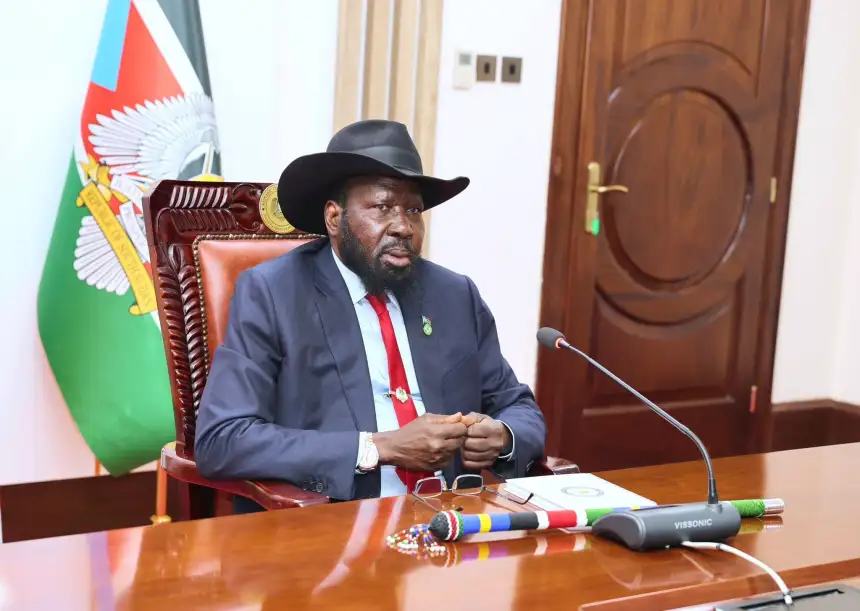South Sudan’s political crisis has deepened after President Salva Kiir suspended First Vice President Riek Machar. The suspension came just hours after Machar was charged with murder, treason, and crimes against humanity.
Charges Against Machar
Justice Minister Joseph Geng announced that Machar and 20 others were accused of organizing deadly militia raids in Nasir, a northeastern town, in March. The government alleges the White Army militia, linked to Machar’s SPLM-IO party, attacked federal forces during the incident.
Alongside Machar, Petroleum Minister Puot Kang Chol was also suspended. Thirteen of the accused remain at large.
Opposition Response
Machar’s SPLM-IO party rejected the charges, calling them politically motivated. The group said the accusations were “fabricated to sideline Dr. Machar and entrench one-tribe rule under President Kiir.”
The party warned that the charges threaten to unravel the 2018 peace deal, which ended South Sudan’s civil war. That conflict killed an estimated 400,000 people and pitted Kiir’s Dinka loyalists against Machar’s Nuer forces.
Rising Political Tensions
Analysts believe Kiir has long sought to replace Machar with his ally, Second Vice President Benjamin Bol Mel. Mel has been sanctioned by the United States over allegations of benefiting from government contracts.
The international community has voiced concern about Machar’s detention, which has lasted since March. Many fear his suspension could push the country back toward widespread violence.
Calls for Fair Trial
Edmund Yakani, head of the Community Empowerment for Progress Organization, urged the government to ensure a fair and transparent legal process. He warned against turning the proceedings into a “kangaroo court.”
What’s Next for South Sudan?
The standoff between Kiir and Machar raises fresh fears of instability in the world’s youngest nation. Without compromise, observers warn South Sudan could slide back into conflict and undo years of fragile peace efforts.

